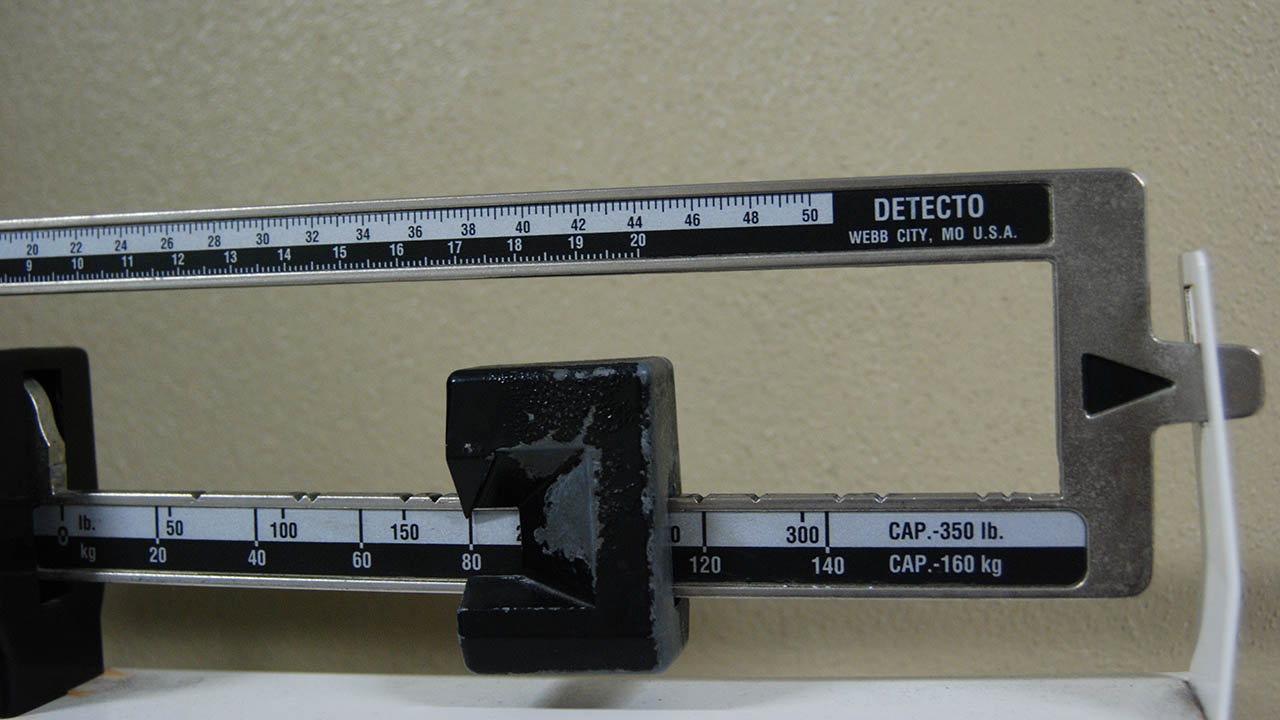Unlearning my obsession with the scale
 CREDIT: EMILY STEWART
CREDIT: EMILY STEWARTOpinion: A scale can help with measuring changes in weight, but frequent weigh-ins can lead to an obsession with the number alone and drive away focus from other measures of progress.
Discovering the non-scale victories trend on social media last spring immediately made me happy. As someone recovering from using the scale too frequently, I’m proud that people celebrate and measure progress towards a healthier lifestyle beyond a number.
There are many non-scale victories. For me, that’s finding a new place to take a long walk, wearing something that flatters my body, regardless of the size, and letting my full stomach settle. Other non-scale victories include completing a marathon, adding more reps to your exercise routine, and feeling like a formerly difficult workout now comes with ease.
Non-scale victories also promote mental wellness — which goes hand in hand with physical wellness. Frequent weigh-ins, on the other hand, can lead to an obsession with only the number on a scale, which can go up and down for several reasons unrelated to muscle or fat.
For the record, I’m not a health expert nor would I ever consider myself as such. I also understand that doctors measure body weight as only one way to unpack the picture of your health.
The research on whether or not daily weigh-ins assist with weight loss also present mixed results. However, I know all too well that becoming obsessed with a number on the scale negatively impacts your physical and mental health.
Despite first reading that weighing yourself every day is ineffective for weight loss and linked to weight gain, I couldn’t stop once I started in high school. I eventually got to a point where I weighed myself once in the morning and once in the evening, sometimes more than that, to monitor my weight.
I felt like it was the only motivation to live a healthier lifestyle and control binge-eating, and I took risks for the number to drop faster. The summer before Grade 12, for example, I saw my jaw surgery recovery as a guaranteed way to lose weight because I was on a no-chew diet. While I was proud to lose 17 pounds in six weeks, I wasn’t providing myself with enough energy and I nearly fainted while showering.
Yet, I continued the compulsive weigh-ins for about nine more years. I also went in cycles of eating less and exercising a lot just to speed up weight loss. I told myself that I would only stop frequent weigh-ins once I reached my goal weight, which I never did and the number just kept rising over time.
I kept my addiction secret, knowing I had a problem but reassuring myself it was only OK because I’m a heavier woman. Fitness inspiration and body transformations are so celebrated, I figured people didn’t need to know every step and frankly, I wasn’t ready to hear others’ concerns.
When I saw people celebrating their non-scale victories, I felt like I finally had permission to quit the scale and focus on what’s really important. I tried to stop in the summer, but I unfortunately relapsed.
I last weighed myself on the scale at the end of September. It’s tempting to go back and look at that number, but it’s freeing not knowing my weight.
Not much has changed since I stopped using the scale. I still walk every day and most of my clothes still fit the same. I now know preventing binge-eating had no correlation with frequent scale use. I’m taking control of how much I eat and giving myself permission to politely decline food when I genuinely feel full or would rather eat something else.
Looking back, the best results from being active had little, if anything, to do with weight loss. I felt a sense of accomplishment if I made it through an aerobics class or ran on the treadmill. I enjoyed feeling like I had less stress and more energy as I became stronger and gave myself some time in the day just for me to exercise while listening to my favourite music.
I also feel less sluggish when I remember to eat nutrient-dense food, but I’m also happy to be at a point where I know it’s not the end of the world if I do decide to treat myself with dessert or if I dine out at an all-you-caneat sushi buffet.
Even though there are health concerns tied to carrying excess weight, everyone of every shape, size, and body mass should be working towards a lifestyle with a well-balanced diet and physical activity. If fat loss and muscle gain happen in the process, great, but making healthier choices in the first place should feel like an accomplishment in itself. When measuring your progress, look for the signs that have nothing to do with the scale.
Editorial opinions or comments expressed in this online edition of Interrobang newspaper reflect the views of the writer and are not those of the Interrobang or the Fanshawe Student Union. The Interrobang is published weekly by the Fanshawe Student Union at 1001 Fanshawe College Blvd., P.O. Box 7005, London, Ontario, N5Y 5R6 and distributed through the Fanshawe College community. Letters to the editor are welcome. All letters are subject to editing and should be emailed. All letters must be accompanied by contact information. Letters can also be submitted online by clicking here.















